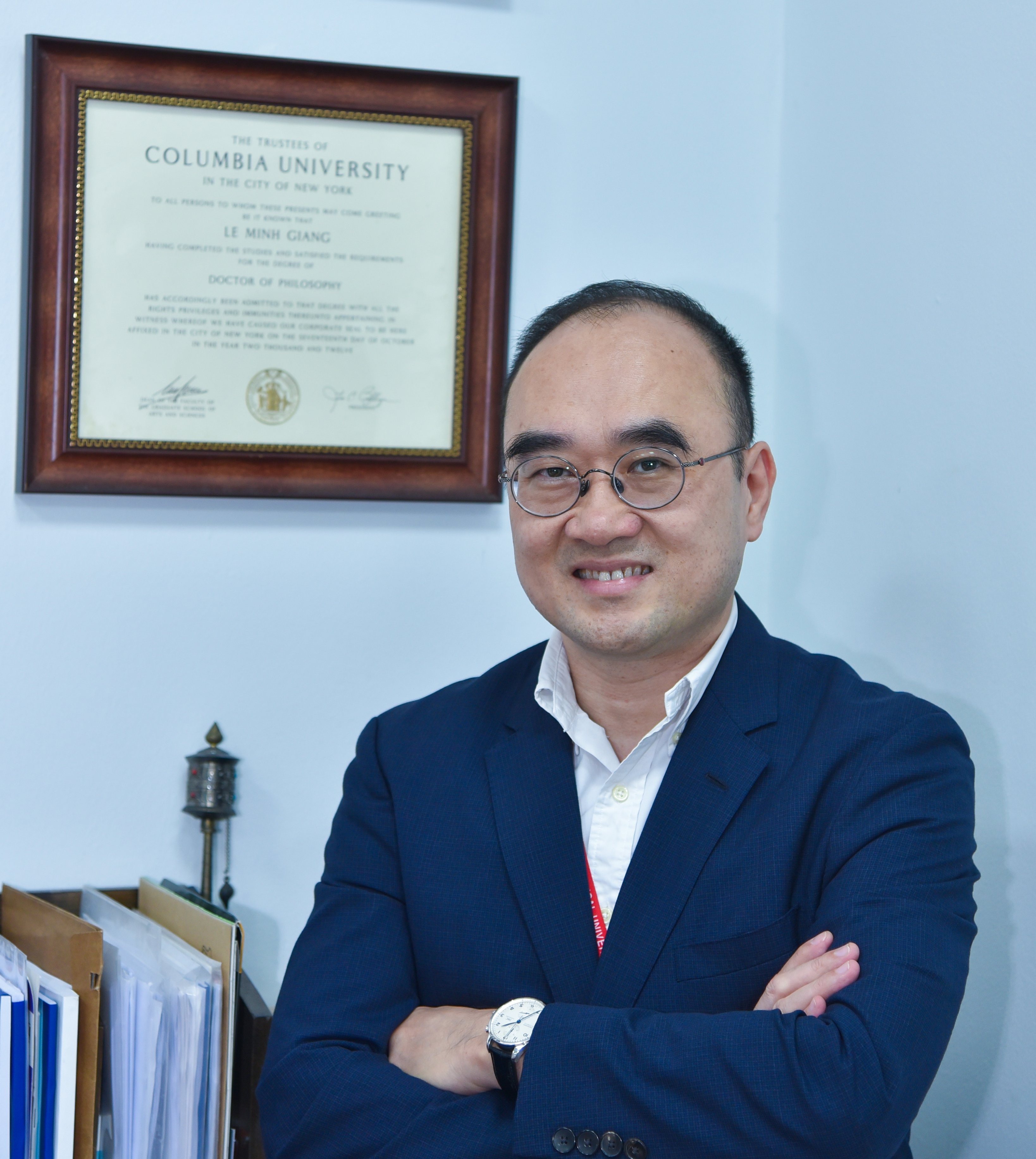Bio
 Dr. LE, Minh Giang is a professor in epidemiology and global health at Hanoi Medical University, Vietnam. Over the past twenty years, he is a prominent leader in the development of research, training and clinical services to reduce the HIV and co-morbidity burden among most vulnerable populations in Vietnam and Southeast Asia. He currently directs the Sexual Health Promotion (SHP) Clinic of Hanoi Medical University Hospital, a unique one-stop-shop health care facility for gay men and transgender women in Hanoi. Over the past ten years, he has led the efforts to build addiction workforce in Vietnam and Southeast Asia through the development of Vietnam-HIV Addiction Technology Transfer Center (2011 - 2020) and Vietnam-International Technology Transfer Center (2021 - now). He has been Principal Investigator and Co-Principal Investigator of multiple grants funded by the US National Institutes of Health to study behavioral risks, optimal treatment and prevention modalities, access to treatments, pharmacokinetics of medication, and social determinants of health outcomes among people who use drugs in Vietnam. He graduated doctor of medicine from Hanoi Medical University and doctor of philosophy in sociomedical sciences from Columbia University in the City of New York.
Dr. LE, Minh Giang is a professor in epidemiology and global health at Hanoi Medical University, Vietnam. Over the past twenty years, he is a prominent leader in the development of research, training and clinical services to reduce the HIV and co-morbidity burden among most vulnerable populations in Vietnam and Southeast Asia. He currently directs the Sexual Health Promotion (SHP) Clinic of Hanoi Medical University Hospital, a unique one-stop-shop health care facility for gay men and transgender women in Hanoi. Over the past ten years, he has led the efforts to build addiction workforce in Vietnam and Southeast Asia through the development of Vietnam-HIV Addiction Technology Transfer Center (2011 - 2020) and Vietnam-International Technology Transfer Center (2021 - now). He has been Principal Investigator and Co-Principal Investigator of multiple grants funded by the US National Institutes of Health to study behavioral risks, optimal treatment and prevention modalities, access to treatments, pharmacokinetics of medication, and social determinants of health outcomes among people who use drugs in Vietnam. He graduated doctor of medicine from Hanoi Medical University and doctor of philosophy in sociomedical sciences from Columbia University in the City of New York.
Abstract
Assessing Needs to Design Context-Specific Technology Transfer: The ITTC Network Approach
The International Technology Transfer Center (ITTC) Network for drug demand reduction develops and strengthens the workforce, organizations, and systems that provide substance use prevention, treatment, and recovery services. ITTCs employ an array of technology transfer strategies, grounded in implementation science and harmonized by an International Coordinating Office, to achieve goals. One critical ITTC strategy is a comprehensive needs assessment that consists of four phases: describe the current drug use situation in a country or region, map where substance use services are provided, identify gaps in services, and detail training and consultation needs. Within this common approach to needs assessment, each ITTC must make decisions about how to conduct the needs assessment in a way that is relevant to the context of that country. In this oral presentation, a panel of ITTC directors from four to five countries will explain their approach to needs assessment, why they took a specific approach, what information they gathered, and how that information is being used to design strategies that will advance evidence-based interventions and policies in their country. Common themes that have been uncovered across all ITTC needs assessments will be featured.
